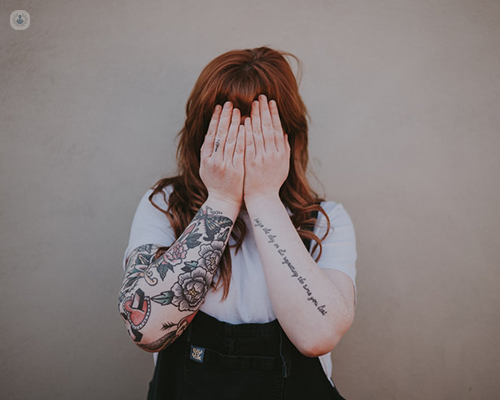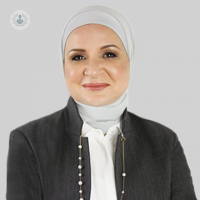Rosacea: how to get rid of redness and bumps
Written by:Rosacea is a common skin condition, usually occurring on the face, which predominantly affects fair-skinned but may affect all skin types in people aged 40 to 60 years old. It is more common in women but when affecting men, it may be more severe.
One of London’s leading dermatologists Dr Hiba Injibar explains the characteristics of the condition and the different types of treatment options available for clearing up rosacea.

What does rosacea look like?
Rosacea is a chronic condition and can persist for a long time and, in any individual, the severity tends to fluctuate. Rosacea tends to affect the cheeks, forehead, chin and nose and is characterised by persistent redness caused by dilated blood vessels, small bumps and pus-filled spots similar to acne.
What can cause flareups?
There are a variety of triggers that may make rosacea worse. These include:
- Alcohol
- Exercise
- High and low temperatures
- Hot drinks, spicy foods
- Stress
- Sensitivity to the sun
Does it get worse with age?
It is uncommon in younger age and affects usually people in their 30s and older.
Is it linked with other conditions?
It might be linked to seborrheic dermatitis.
When should someone seek medical help for their rosacea?
When it is painful, when it is unsightly and affecting their confidence, when it keeps fluctuating and getting worse with triggers.
What treatment is available?
The inflammatory element of rosacea may be controlled with a medication applied to the affected areas. It takes at least eight weeks for their effect to become evident and some applications work specifically to reduce the redness associated with rosacea. Examples are topical antibiotics, Metronidazole gel, and Ivermectin gel.
Sometimes we prescribe a very low dose of oral antibiotics to help with severe inflammation. I always advise my patients to use a specific range of cleansers and moisturisers designed for sensitive rosacea-prone skin, and always strict sunscreen use as rosacea can be worsened by sun exposure.
The flushing and facial veins caused by rosacea can be treated with lasers. A few sessions are needed four to six weeks apart and this laser causes the dilated blood vessels to constrict and disappear.
If you would like to visit Dr Injibar about your skin condition, you can book an appointment to see her via her Top Doctor’s profile here.


